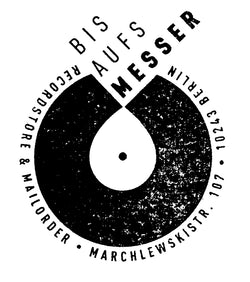A native of Virginia and resident of Philadelphia since 1998, Jack Rose first rose to prominence with the drone/noise/folk unit, Pelt. Pelt can be counted among the early influential new music underground bands such as UN, No Neck Blues Band, Charalambides, Tower Recordings and Six Organs of Admittance. Rose recorded and toured with the band up until 2006. Rose released his first solo LP in 2002, "Red Horse, White Mule", of post-Takoma, American primitive guitar. Along with the influences of John Fahey and Robbie Basho, Rose also incorporated North Indian classical, early American blues, bluegrass and minimalism into his singular style. 2005 saw the release of his fourth LP, "Kensington Blues", which incorporated all of the aforementioned influences and his playing/composing fully flowered. That LP is now considered a classic of contemporary guitar music.
In 2008 and 2009 Rose released "Dr. Ragtime and Pals" and "Jack Rose and the Black Twig Pickers" respectively. Those recordings featured many additional players like Glenn Jones, Micah Smaldone, Harmonica Dan and the Black Twig Pickers. The songs drew heavily on pre-war influences, either written by Rose or were his arrangements of early American classics. "Luck in the Valley " will be the third album in this set of recordings that Rose jokingly refers to as his "Ditch Trilogy". Rose continues his exploration of pre-war American music with a set brand new material featuring the Twigs, Jones, Harmonica Dan and Hans Chew along with a handful of solo pieces. This recording set out to capture the energy and feel of the classic three-track shack recordings by the Wray Brothers and Mordicai Jones. "Luck In The Valley" was written and recorded over a period of nine months off the road, an unusually long time for Rose to be at home and woodshedding. The album finds Rose employing new themes and techniques that haven't appeared on previous releases.
Like all pre-war recordings and all of Rose's releases, this album was recorded live. It was not created using overdubs but rather by recording a few "takes" and selecting the best performance out of those. Rose stated, "I wanted the songs to have an immediacy and spontaneity as they were being recorded. All the musicians chosen for the record know how to play the songs without overworking the material, but at the same time creating memorable accompaniments on the spot." Several of the songs are in fact the first takes like “Blues for Percy Danforth”, “Lick Mountain Ramble” and "Woodpiles on the Side of the Road". Also Included in the set are three covers: “St. Louis Blues”, “Everybody Ought to Pray Sometime” and “West Coast Blues”. All of these pre-war classics are Rose’s unique arrangements.
The album title refers to the old red light section of St. Louis and was a code for procuring the services of a prostitute. Says Rose "I read about it on some liner notes to a reissue of pre-war St. Louis recordings and I liked the ring of it." An avid record collector with an encyclopedic knowledge of pre-war American music, Rose has been acknowledged as a rising star among contemporary guitar players. "Luck in the Valley" finds Rose at his best surrounded by like-minded friends on a recording that is enriched by a sense of history but entirely new, vibrant and warm.

